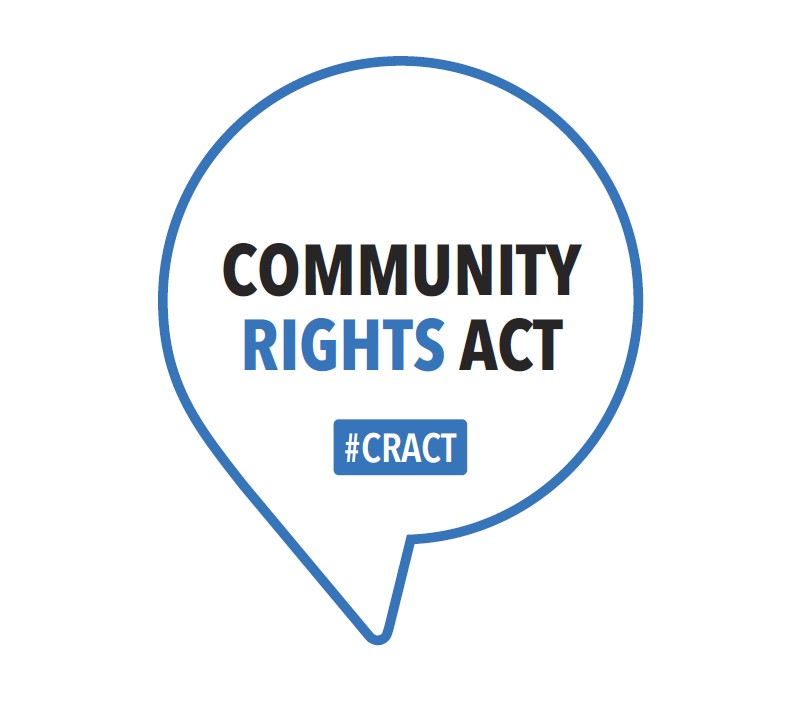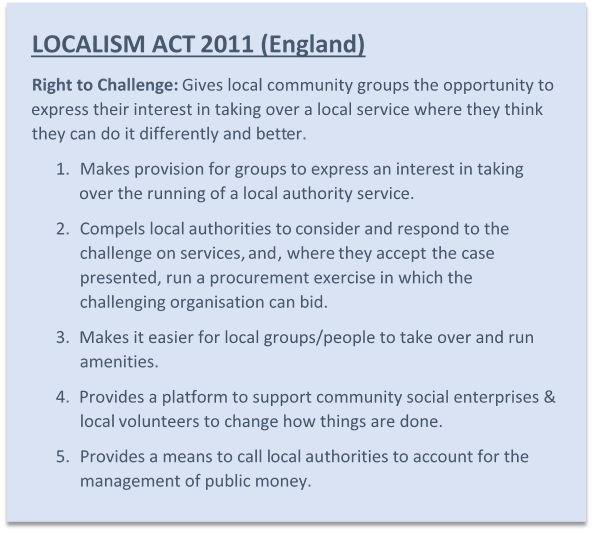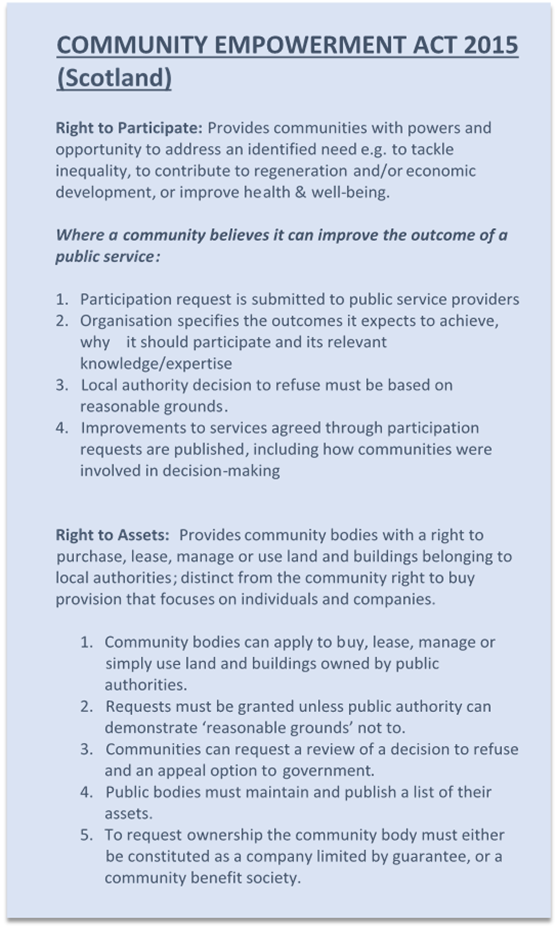
Recent political discourse in Northern Ireland (NI) is liberally peppered with reference to ‘rights’ – language rights, an Irish Language Act coupled with a specific Rights Act for Ulster-Scots; or perhaps a cultural rights framework capturing the British identity of the people of NI. However, the demand for rights in NI extends beyond the narrow parameters of national identity and includes, for example, marriage and reproduction rights. Social change demands that our political system keeps step.
Beyond the European and national stage and the debate that centres around individual and human rights, there is a broader debate to be had, and that debate focuses on the meaning of rights from a collective perspective. Collective rights, or as we refer to them here, ‘community rights’, are needed to facilitate and enable community action for social change. Community rights are group rights and should be seen as an extension of the principle of democracy by expanding citizen participation in decision-shaping and decision-making. Through a range of provisions, they provide the means by which community organisations, operating outside of civic society can hold local public authorities to account.
The Development Trust Association of community development organisations across these islands has long advocated for community rights. We contend that communities need to be afforded specific rights that will enable them to deliver social and economic development priorities. These rights should sit alongside other legislative provisions that give statutory authority to public agencies and local government to fulfil their functions and deliver the services they are there to provide.
In NI we are well versed in the vocabulary of rights. We have a strong cultural memory of when our social & economic conditions demanded legislative redress, such as a repeal of the poor laws in the 1930s, and the civil rights protests in the 1960s which ran parallel to wider demands for social justice across the globe. But we have failed – politically at least – to properly engage and support communities to lead on local social and economic development. As a society we have engaged communities to deliver programmes that are more about managing the symptoms of poverty and disadvantage than about transforming social conditions that create disadvantage and inequality. Many of the communities that are disadvantaged today are the very same communities that were disadvantaged up to forty years ago.
We need to understand therefore that communities themselves are the solution for social change and that legislation should enable communities to play a fuller role in social and economic development alongside public bodies with whom they have a shared purpose. That legislation must give communities the tools to drive social change; a right to own, to buy, to participate and to challenge.
We failed in NI, partly because we perceive rights through either a green or orange prism. And while we compartmentalised rights at home, we missed the emerging opportunity that has been shaping statutory provisions for collective action elsewhere across the UK. 2003 saw the introduction of Land Reform Act in Scotland (updated in 2016); 2011 saw the Localism Act in England and 2015 saw the introduction of the Community Empowerment Act in Scotland.
We, in NI, are behind the curve and in danger of letting the zeitgeist for new forms of social action pass us by.
It is not enough to leave change to politicians alone. It is not enough to allow our civil service to interpret the will of communities for system change when they are part of the very system that needs changing. There is a need for all stakeholders to come together to understand the problems from each other’s perspective and to prepare a bill for approval by the NI Assembly and Executive.
To advance community development practice in Northern Ireland, it is imperative that we move to introduce a Community Rights Act.
A Community Rights Act should:
In addition to the above it is important that a Community Rights Act complements work ongoing to introduce an NI Social Value Act. The Localism and Community Empowerment Acts are distinct in their purpose, being concerned with community engagement and ownership. These acts complement the objective of the Public Services (Social Value) Act 2012 which requires…‘public authorities to have regard to economic, social and environmental well-being in connection with public services contracts; and for connected purposes).
That should inform our thinking in NI also.
Consider the Localism and Community Empowerment Acts below, as guidance for the types of provision we ought to consider when shaping our own legislation:


A collective voice must emerge quickly and present the case for action by the NI Assembly and Executive. It in turn must facilitate a process of community dialogue that will enable community representatives to consider in detail the provisions to be included within a Community Rights Act without political interference or favour.
DTNI will continue to advocate on behalf of its members in this regard and the wider community development sector working in and across our rural settlements, villages, towns and cities.
SUPPORT OUR CAMPAIGN FOR A COMMUNITY RIGHTS ACT
For further information follow us on Twitter @devtrustsni and at the campaign page @NICommRights and use the hashtag #CRACT